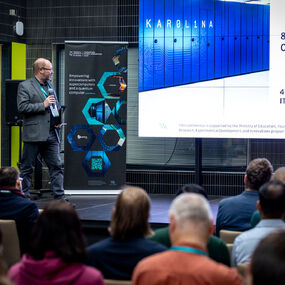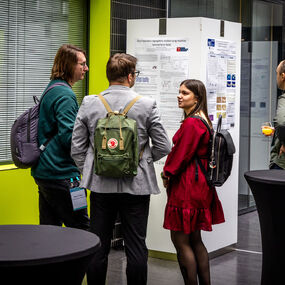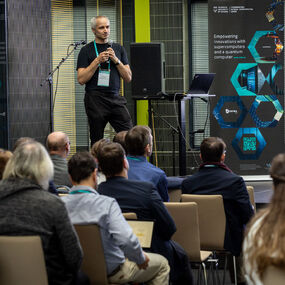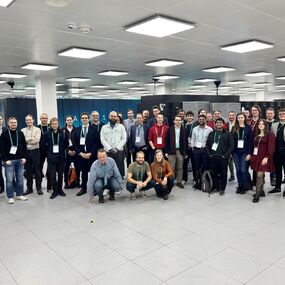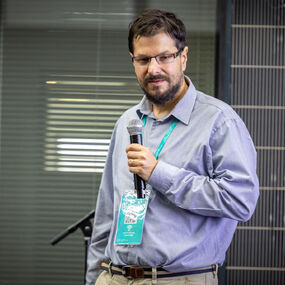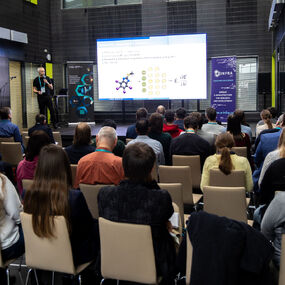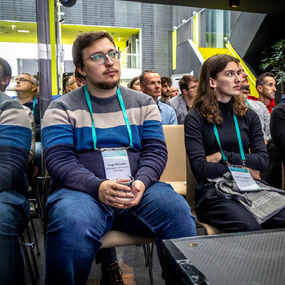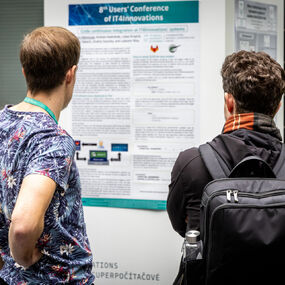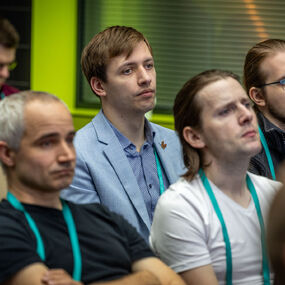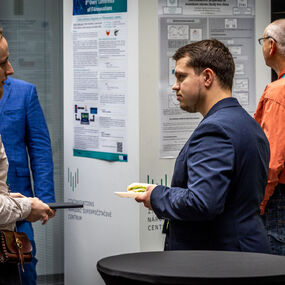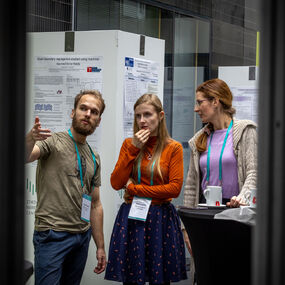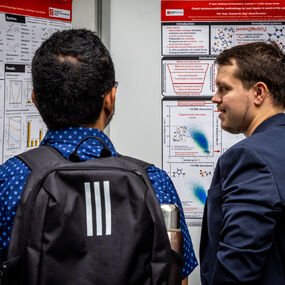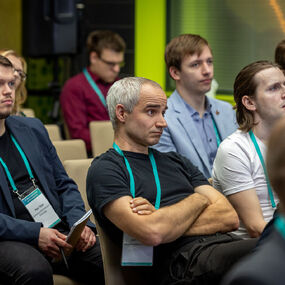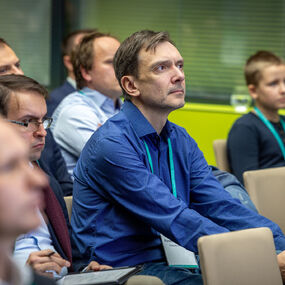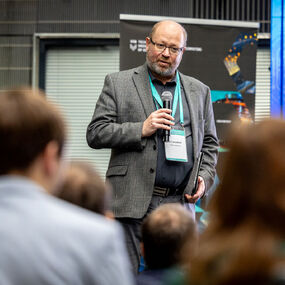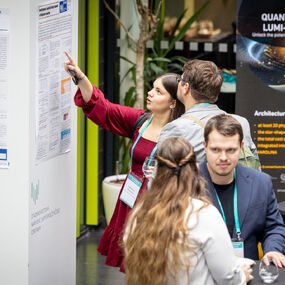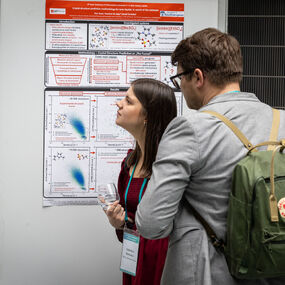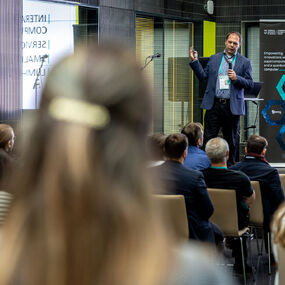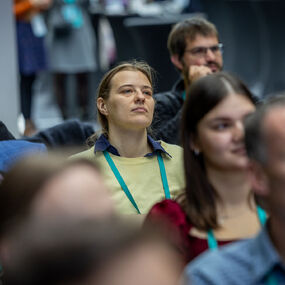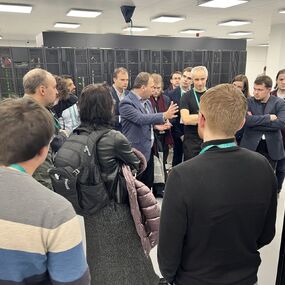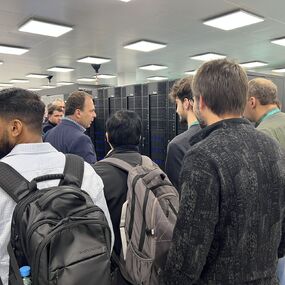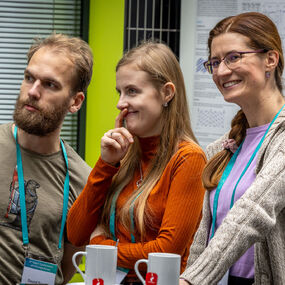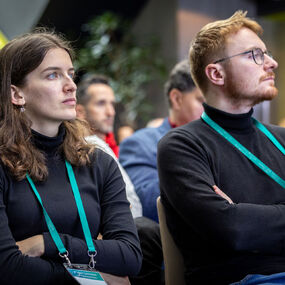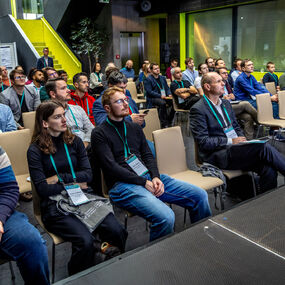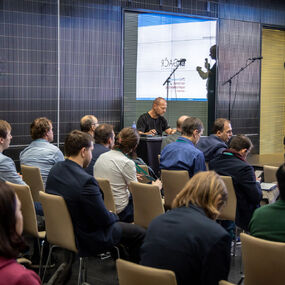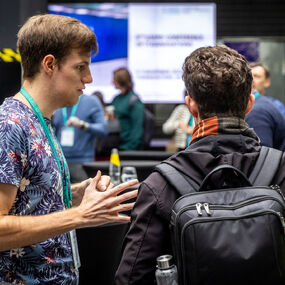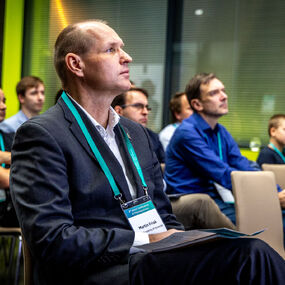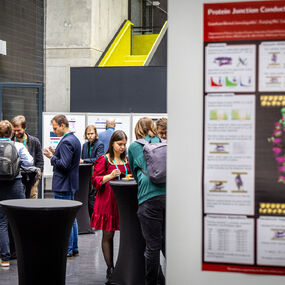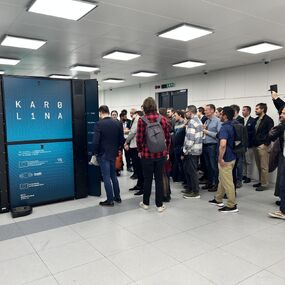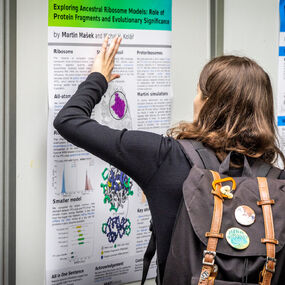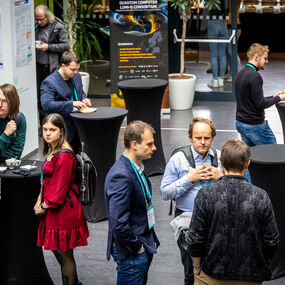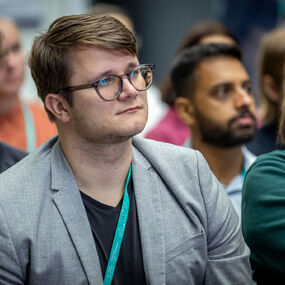At the 8th Users' Conference of IT4Innovations,
79 participants gathered for a two-day programme focused on their use of IT4Innovations computational resources in fields ranging from machine learning and quantum chemistry to molecular dynamics and materials engineering. The programme featured
22 talks and 33 scientific poster presentations.
Three keynote presentations, selected by the conference's programme committee, addressed current research topics.
Jan Řezáč from the Czech Academy of Sciences presented the PM6-ML method, which combines the semiempirical quantum mechanical method PM6 with modern machine learning approaches, bringing new possibilities for applications like computer-aided drug design. PM6-ML thus becomes a useful tool for faster and more efficient development of pharmaceutical compounds. More information about his research and the implementation of this method can be found [here].
On behalf of his colleague Alexandra Ivanova, Pavel Polishchuk from Palacký University Olomouc introduced StreaMD, a high-throughput automated molecular dynamics simulation tool. Thanks to the Dask Python library, this tool supports parallelisation and distributed computing, which significantly increases efficiency, and it also supports GPU-accelerated computations, offering a substantial reduction
in processing time. Details about this open-source tool can be found [here].
Michal Kravčenko from IT4Innovations presented on shape optimisation, focusing on aerodynamic design for airfoils and car bodies.
By developing a machine learning-powered, differentiable model, the development team can now predict computational fluid dynamics (CFD) outcomes at a fraction of the usual time and cost. This advancement allows for rapid design iterations, simplifying optimisation for real-world engineering applications. Read more about his talk and research [here].
A key component of the conference was also the Users' Council discussion, which covered CPUs in future systems and the possibilities
of running jobs on a quantum computer. The forum provided valuable feedback for both users and IT4Innovations representatives to better understand the needs of the research community.
João Barbosa from IT4Innovations introduced the services of the High Level Support Team (HLST), available to users of the EuroHPC JU supercomputers, including Karolina. HLST provides tailored expert support – from workflow optimisation and troubleshooting to advice on code modernisation, data management, and efficient resource allocation. Detailed information on how to contact HLST and benefit from the help of experts through the EPICURE project, can be found in his presentation [here].
Tomáš Karásek from IT4Innovations provided an overview of the current state of supercomputers within the European Joint Undertaking ecosystem. He focused not only on the existing computational systems and their accessibility, but also on the process of evaluating project applications and the outcomes of open access calls. The presentation [here] includes links to the technical specifications of supercomputers that are available not only to employees of Czech research organisations, but also to enterprises and public administration institutions. For those interested in using these resources, specialists from the Czech National Competence Centre for HPC are available to offer expert advice.
The poster session allowed scientists to showcase their latest work in molecular simulations, computational chemistry, and biophysics, creating opportunities for knowledge exchange and collaborative discussions on the challenges they face in their research.
The Users' Conference of IT4Innovations once again highlighted the indispensable role of supercomputers in scientific research, offering a dynamic platform for sharing knowledge in the fields
of supercomputing, materials science, pharmaceutical research,
and other scientific disciplines.

